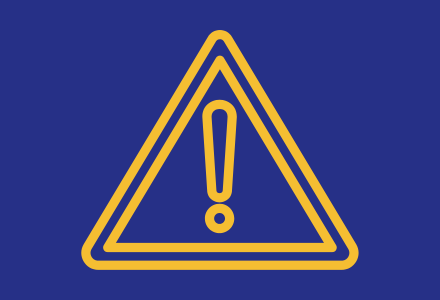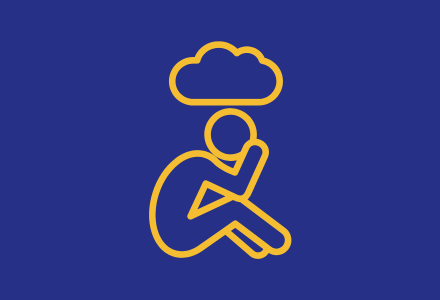Our Advice Centre is CLOSED today

Managing stress
Information on and tips to help if you are feeling stressed and under pressure
What is stress?
Stress is a natural response to feeling under pressure or feeling overwhelmed. Everyone feels stressed from time to time and that’s okay. We will all come across stressful situations in our lives and they can’t be avoided, but it’s how we deal with those events and the feelings we get that have the lasting impact.
It’s easy to bottle up stress, whether that’s because you don’t recognise it, or don’t feel you have anyone to talk to about it, but keeping it all inside you can build it up and make it worse.
Burnout
Burnout is not the same as stress, but it is related. It’s when people have been stressed or very busy for longer than their body can physically or mentally take. It can lead to you feeling run down and mentally drained, and even getting ill. If you feel you are getting burnt out, it’s important that you tell someone at your work, school or college so you can get support.
What does stress feel like?
Signs of stress will be different for everyone and there are lots of different things that can happen – physical and mental – but some common signs include:
– Feeling like you can’t concentrate or you have brainfog
– Feeling like your body is tense and tight
– Headaches
– Tiredness, from general low energy or lack of sleep
– Feeling on edge or angry
– Anxiety
– Low mood
– Feeling a sense of dread
– Feeling sick, fainting and vomiting
– Sweating
What can cause stress?

Education and exams
Education, whether that’s school, college or university can be a lot of work, especially when it comes to exam period. If you’re struggling with exam stress, check out our separate resource.
Take me there

Work
People often feel a lot of pressure around work, whether that’s because of things happening in their job, like having big responsibilities or issues to deal with, or if they are feeling pressure to find a job. Many people say that a job interview is one of the most stressful things they have done.
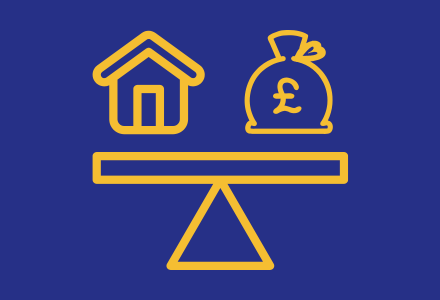
Other life events
Other events that you have to deal with in life, like housing, money and relationships can cause you a lot of stress if you don’t feel in control or are going through changes, for example, if you don’t have a permanent place to live, if you are in debt, and if you are going through a break up.

Current events
People can get stressed about things going on in the world and what the future will look like. These can be things like national or global economic situations, the environment, conflict and wars.

Other mental health issues
Stress is one of a number of signs and symptoms of other mental health issues like anxiety and depression. For example, if you struggle with anxiety, stress may be one of your body’s responses to situation that make you feel anxious.
What can I do if I feel stressed?
 Talk to someone you trust
Talk to someone you trust
Talking to someone you trust about feeling stressed can help to lift the weight off your shoulders. If you choose someone who you think will understand, they might be able to help you work out what is causing you to feel stressed and how you can begin to take control of the situation.
 Accept and acknowledge your stress
Accept and acknowledge your stress
Everyone will feel stressed at some point and the reason for it will be different for everyone, but it’s always okay to feel that way and you should try not to be unkind to yourself about it.
Some people might feel stressed, then feel stressed about feeling stressed, which just makes things worse. Accepting that you feel that way and working with it is the first step to solving the issue you have.
 Try to work out what exactly is making you feel stressed
Try to work out what exactly is making you feel stressed
This might be really obvious for some people – it might be one big thing that they need to overcome – but for others, it might be a few little things that are building up.
If you aren’t sure what is triggering it, try to list all the possible things that it could be, like different situations at school or work, or different life events. Work out how you feel about each thing and what you would have to do to start to feel in control of each situation, like who you need to talk to, or what you need to do.
 Fresh air can help
Fresh air can help
Taking a walk to get some fresh air can help you let off steam and think clearer. It doesn’t have to be a slow, relaxing walk, you might find going for a fast, powerful walk, run, or playing sport gets rid of some energy built up from stress.
When you exercise, it clears adrenaline, which activates your ‘fight or flight’ instinct and cortisol, which is a hormone that forms part of your body’s stress response. Movement and exercise also increase blood flow and produce endorphins, a chemical that makes us feel happy and positive.
 Activities inside
Activities inside
If stress is taking over and you need to escape, doing simple self-care activities like reading a book or watching a film can help you switch off from the world. Trying something like mindfulness colouring or meditation might help soothe your mind.
Cleansing can also help you to have a bit of a mental reset. Taking a bath or shower, or even just washing your face might help you to feel refreshed and ready to go again.
 Plan for the future
Plan for the future
When you get through your stressful situation, you’ll be better equipped to deal with the next one. Think about what triggers stress for you and make a plan for what you will do if you feel stressed in the future – who you’re going to talk to, what actions you will take to gain control and so on.
How can I help someone who is feeling stressed?

Talk through their stresses with them
If you think someone is stressed, ask them if there is anything you can help with but don’t pressure them to say more than they’re comfortable with.
If someone tells you they’re stressed and they know what’s making them feel that way, work through the situation with them and how they can sort it out and feel on top of it. If they don’t know what’s making them stressed, see if you can work out together what it is and what actions they could take.

Reassure them that their feelings are valid
They may feel embarrassed or silly for feeling stressed, like they shouldn’t be getting so worked up, but their feelings are completely normal. Telling them that it’s okay to feel that way may help them to start taking action.

Work out their triggers with them
If you have talked to them about what’s making them stressed, you could then help them to understand and work out what sort of situations and events trigger stress for them. It may not be obvious at first, but if you identify anything, you can help them start to make a plan for how they can control the situation next time, like who they can talk to and what they can do to reduce stress. Helping them to recognise their signs of stress can be helpful, too.
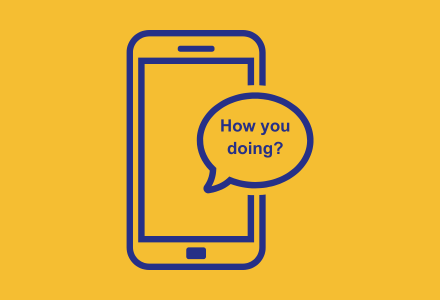
Check in on them
Regular contact means that they have someone to share how they’re feeling with and asking them how they are tells them that you’re there for them. You might also want to ask if there’s anything you can do to help them feel less stressed.
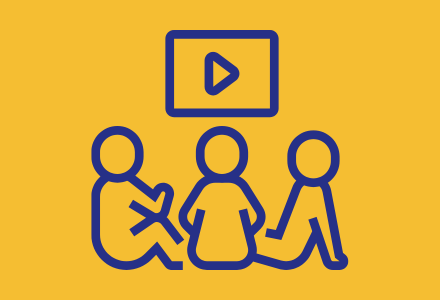
Help them to relax or have a change of scenery
What might help them is to just get out of their situation for a bit. You could see if they want to go for a walk, get some food, go see other friends or watch a film or play games together. Having a distraction for a little while might give them more energy to face what’s making them stressed and it might give them an opportunity to talk about it as well.

Support them to get further help
If you’re worried about them, try and support them to reach out for further help from a professional, like a No Limits worker or their GP. Getting support from somewhere can be daunting, even if it’s the right thing to do, so helping them with
practical things like making contact or booking appointments can be a big help.
Want to talk to No Limits?
We have a range of mental health and wellbeing services for children and young people under 26 in Southampton, Hampshire, Portsmouth and the Isle of Wight, including therapeutic support from counsellors and youth wellbeing practitioners, our out-of-hours Safe Havens for young people experiencing a mental health crisis, and our Advice & Wellbeing Hub which offers you ways to get support from trained youth workers without having to wait.
Find out moreI want to find out more
These websites have more information on anxiety and panic attacks:
– Mind – Stress – Click here
– The Children’s Society – Stress – Click here
– NHS – Dealing with stress – Click here
– CALM – Stress – Click here
24/7 mental health support
You can also contact these organisations for support. All support is free, available 24/7, 365 days a year.
– Papyrus – Phone service for people under 35 experiencing suicidal thoughts. Call their Hopeline on 0800 068 4141
– SHOUT – Anonymous text service for people struggling with their mental health – Text ‘HANTS‘ to 85258
– Samaritans – A phone service for if you need someone to listen to you. They won’t offer you information or advice, but they will listen – Phone 116 123

